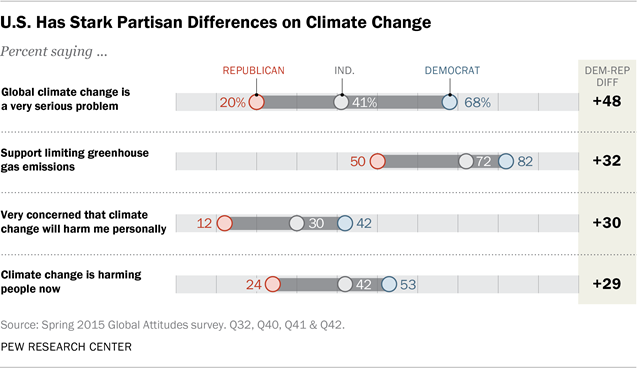On April 22, leaders and representatives from more than 150 countries will gather at the United Nations to sign the global climate change agreement reached in Paris in December. Pew Research Center’s spring 2015 survey found that people around the world are concerned about climate change and want their governments to take action. Here are seven key findings from the poll:
Majorities in all 40 nations polled say climate change is a serious problem, and a global median of 54% believe it is a very serious problem. Still, the intensity of concern varies substantially across regions and nations. Latin Americans and sub-Saharan Africans are particularly worried about climate change. Americans and Chinese, whose countries have the highest overall carbon dioxide emissions, are less concerned.
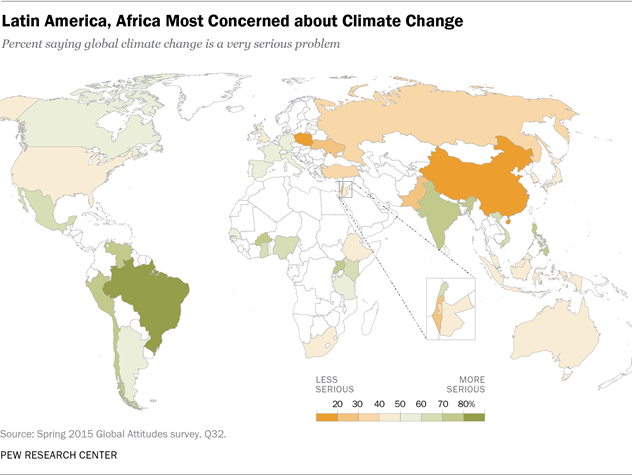
People in countries with high per-capita levels of carbon emissions are less intensely concerned about climate change. Among the nations we surveyed, the U.S. has the highest carbon emissions per capita, but it is among the least concerned about climate change and its potential impact. Others in this category are Australia, Canada and Russia. Publics in Africa, Latin America and Asia, many of which have very low emissions per capita, are frequently the most concerned about the negative effects of climate change.
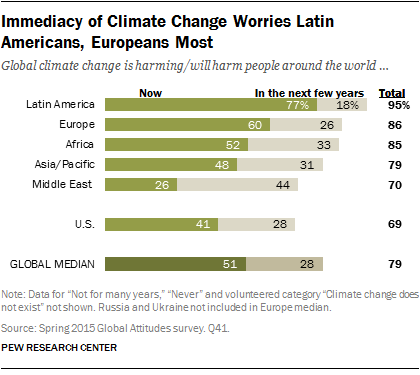
Climate change is not seen as a distant threat. A global median of 51% say climate change is already harming people around the world, while another 28% believe it will do so in the next few years. This view is especially common in Latin America. For instance, fully 90% of Brazilians say climate change is harming people now. Europeans are also particularly likely to hold this opinion. However, only 41% of Americans believe people are being harmed by climate change today.
Drought tops the list of climate change concerns. We read respondents a list of four potential effects of global warming, and asked which one concerns them the most: droughts or water shortages; severe weather, such as floods or intense storms; long periods of unusually hot weather; or rising sea levels. In 31 nations, drought is a top worry. Fully half of Americans name drought as their chief climate change concern, and this is especially true in drought-plagued Western states compared with other regions of the country.
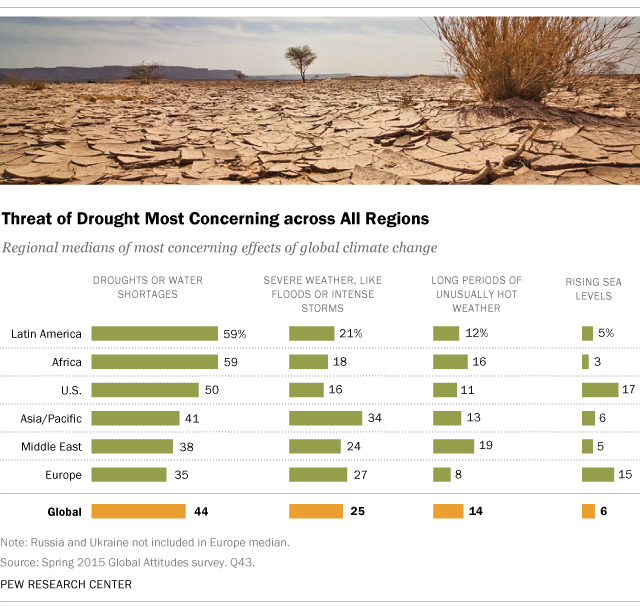
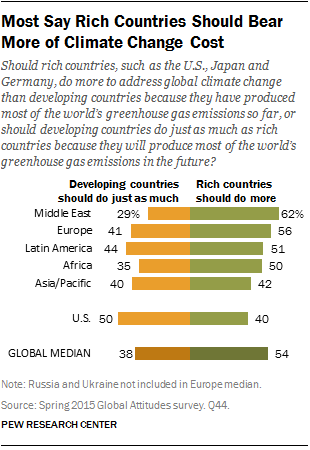
Most people in the countries we surveyed say rich nations should do more than developing nations to address climate change. A median of 54% agree with the statement “Rich countries, such as the U.S., Japan and Germany, should do more than developing countries because they have produced most of the world’s greenhouse gas emissions so far.” A median of just 38% think “developing countries should do just as much as rich countries because they will produce most of the world’s greenhouse gas emissions in the future.” Notably, the U.S. is among a small group of countries in which half or more believe developing countries should do just as much – half of Americans hold this view, while only four-in-ten want rich countries to shoulder more of the costs.
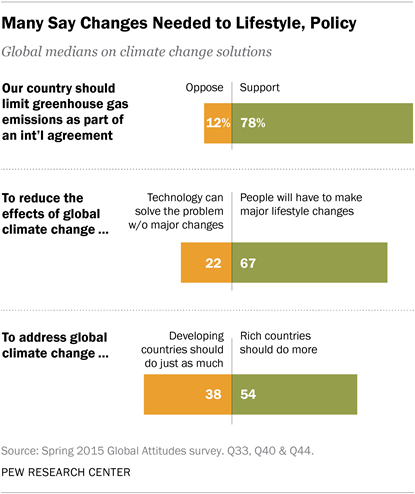
To deal with climate change, most think changes in both policy and lifestyle will be necessary. A median of 78% support the idea of their country joining a global agreement in Paris to limit greenhouse gas emissions. Two-thirds believe people will have to make major lifestyle changes to combat climate change, while just 22% say technology will solve the problem and major changes in how people live won’t be needed. Even in the U.S., a country known for its technological advances, only 23% believe technology alone can solve climate change.
Americans’ views about climate issues divide sharply along partisan lines. The polarization that characterizes U.S. public opinion on so many issues is especially stark on climate change. Democrats are much more likely than Republicans to consider it a very serious problem, believe its effects are being felt now, think it will harm them personally, and support U.S. participation in an international agreement to limit greenhouse gas emissions.
